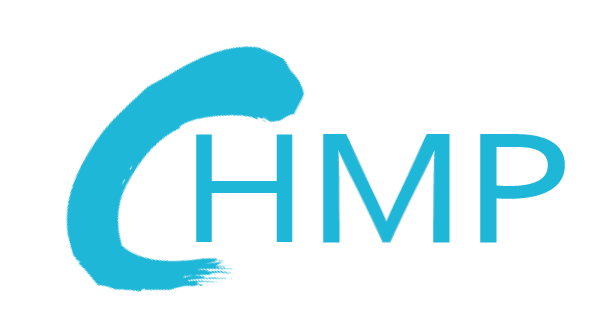SEO 指南
什么是搜索引擎优化? 完整的搜索引擎优化指南!
什么是SEO?
SEO 是搜索引擎优化的缩写。 它是一个提高网站或网页在搜索引擎未付费结果中可见度的过程。 搜索引擎优化的目标是通过提高网站在搜索引擎结果页面(SERPs)中的可见度来提高网站流量的质量和数量。
为此,搜索引擎优化从业者会使用各种策略和技术来提高网站在搜索引擎结果中的排名。 搜索引擎优化的最终目标是改善用户体验,让用户更容易通过搜索引擎找到所需的信息。
通过提高网站在搜索引擎结果中的可见度,企业和组织可以为其网站吸引更多合格的流量,从而增加销售额、销售线索和收入。


为什么 SEO 对于在线业务很重要?
搜索引擎优化对在线业务非常重要有几个原因:
增加流量: 在搜索引擎结果页面中排名靠前,您的网站更有可能获得更多合格流量。 这可以为您的企业带来更多的销售额、潜在客户和收入。
成本效益高: 搜索引擎优化是一种具有成本效益的营销策略,因为它针对的是那些正在积极搜索类似于您的产品或服务的用户。 这意味着您可以在潜在客户最有可能购买的时候接触到他们。
本地搜索引擎优化: 如果您的企业有实体店,本地搜索引擎优化可以帮助您吸引本地客户。 通过优化您的网站和 Google My Business 列表中的本地关键词,您可以增加在本地搜索结果中出现的机会。
移动优化: 随着越来越多的人使用移动设备搜索网络,您的网站必须对移动设备友好。 搜索引擎优化有助于提高网站的移动友好性,从而增加流量和收入。
增加用户体验: 通过针对搜索引擎优化网站,可以改善整体用户体验。 这可以提高用户参与度和网站停留时间,从而提高搜索引擎排名。
总之,搜索引擎优化是任何在线业务战略的重要组成部分,因为它有助于提高网站的知名度和可信度,从而增加流量、销售额和收入。
SEO 公司如何帮助在线业务?
搜索引擎优化公司可以通过多种方式帮助在线企业:
进行关键词研究: 搜索引擎优化公司可以帮助确定潜在客户用于搜索类似产品或服务的相关关键字。
页面优化: 搜索引擎优化公司可以帮助优化网站的页面元素,如标题标签、元描述和标题标签,使其对搜索引擎更加友好。
页面外优化: 搜索引擎优化公司可以帮助建立来自其他知名网站的高质量反向链接。
技术性搜索引擎优化: 搜索引擎优化公司可以帮助解决网站上可能妨碍搜索引擎排名的技术问题,如链接中断、内容重复和加载速度慢等。
内容营销: 搜索引擎优化公司可以帮助创建和推广高质量、有价值的内容,吸引并留住明确界定的受众,最终推动客户采取有利行动。
总之,搜索引擎优化公司可以帮助提高网站的知名度和可信度,从而增加流量、销售额和收入。

搜索引擎优化如何运作?
搜索引擎优化通过优化网站的内容和结构,使其对搜索引擎更具可见性和吸引力。
谷歌等搜索引擎在抓取网站时,会寻找某些有助于了解网站内容和目的的元素,这些元素包括关键词、标题标签、元描述和标题标签等。 为了针对搜索引擎优化网站,搜索引擎优化人员会分析网站的内容和结构,以及人们在搜索网站所提供的产品或服务时使用的关键词。 然后,从业人员会对网站的内容和结构进行修改,使其对搜索引擎更加友好,并包含目标关键词。
除了页面优化,搜索引擎优化从业人员还可能参与页面外优化活动,例如从其他知名网站建立高质量的网站反向链接。
总之,搜索引擎优化的目标是提高网站的知名度和可信度,从而为企业增加流量、销售和收入。 选择您的搜索引擎优化套餐


搜索引擎优化的核心要素是什么?
搜索引擎优化的核心要素包括
关键词: 关键词是人们在网上搜索产品或服务时使用的单词和短语。 在网站内容、标题标签和元描述中包含相关关键词非常重要,这样可以使网站在搜索引擎结果页面(SERP)中更显眼。 网页优化: 页面优化是指优化网站内容和结构,使其对搜索引擎更友好的过程。 这包括标题标签、元描述、标题标签和网站的整体结构。
页面外优化: 页面外优化是指在网站之外为提高搜索引擎排名而开展的活动。 这包括从其他知名网站建立高质量的反向链接。
技术性搜索引擎优化: 技术搜索引擎优化是指优化网站的技术方面,以提高其搜索引擎排名。 这包括网站的加载速度、移动友好性、是否存在断开链接或重复内容等。
内容营销: 内容营销包括创建和推广有价值、相关和一致的内容,以吸引和留住明确界定的受众,并最终推动客户采取有利行动。 内容营销是搜索引擎优化的重要组成部分,因为搜索引擎重视拥有高质量、信息丰富的内容的网站。
总之,这些要素共同作用,可以提高网站的知名度和可信度,从而为企业带来更多的流量、销售和收入
黑帽与白帽搜索引擎优化
黑帽搜索引擎优化是指以违反搜索引擎服务条款的方式操纵搜索引擎排名的策略和技术。这些策略可能会暂时提高网站的搜索引擎排名,但也可能导致网站被禁止进入搜索引擎索引。 黑帽搜索引擎优化策略的一些例子包括关键字填充、隐形和链接计划。 另一方面,白帽搜索引擎优化指的是以符合道德和搜索引擎指南的方式提高网站搜索引擎排名的策略和技术。 这些策略旨在改善用户体验并为用户提供价值。 白帽搜索引擎优化策略的一些例子包括关键字研究、页面优化、页面外优化和内容营销。
总的来说,避免使用黑帽搜索引擎优化策略非常重要,因为它们可能导致搜索引擎的惩罚或封禁。
相反,最好把重点放在白帽搜索引擎优化策略上,这将有助于以可持续和道德的方式提高网站的知名度和可信度。
黑帽搜索引擎优化包括
重复内容
SEO中的重复内容是指与互联网上已存在的内容相同或非常相似的内容。当一个网站有多个包含相似或相同内容的页面时,或者当一个网站未经许可从另一个网站复制内容时,就会发生这种情况。重复内容可能是 SEO 的一个问题,因为搜索引擎可能不知道在搜索结果中排名哪个版本的内容。因此,搜索引擎可能会选择不对任一版本进行排名,或者可能会在两个版本之间拆分排名,这会降低网站在搜索结果中的可见度。为了避免重复的内容问题,确保您网站上的内容是唯一且原创的非常重要。如果您确实需要使用其他来源的内容,请确保正确标注其属性,并在必要时获得许可。您还可以使用“规范”标签告诉搜索引擎您希望他们索引哪个版本的内容。总的来说,避免 SEO 中的重复内容非常重要,因为它会对网站在搜索结果中的可见性和可信度产生负面影响。看不见的文字和关键词堆砌 SEO中的不可见文本是指放置在网页上但用户不可见的文本。这通常是通过使用与背景颜色相同的颜色文本或使用关键词堆砌是指在网页中塞入大量关键词以试图操纵搜索引擎排名的做法。这样做的目的是试图欺骗搜索引擎,让其认为该网页与某些关键字的相关性比实际情况更相关。 CSS 将文本放置在屏幕之外来完成的。隐形文本通常用于在网页中填充关键字,以试图操纵搜索引擎排名。隐形文本和关键字填充都被视为黑帽 SEO 策略,因为它们违反了搜索引擎的指导方针,旨在操纵搜索引擎排名而不是改善用户体验。这些策略可能会导致搜索引擎的处罚或禁止,应该避免。与其使用隐形文本和关键字填充等黑帽策略,不如专注于旨在改善用户体验并为用户提供价值的白帽 SEO 策略。这包括关键词研究、页内优化、页外优化和内容营销等。
隐藏和重定向
SEO 中的伪装是指向搜索引擎和用户呈现不同内容或 URL 的做法。这通常是通过向搜索引擎显示网页的一个版本,同时向用户显示不同的版本来完成的。这样做的目的是为了操纵搜索引擎排名并欺骗用户。 SEO 中的重定向是指将一个 URL 转发到另一个 URL 的过程。执行此操作的原因有多种,例如纠正 URL 中的拼写错误、将多个页面合并为一个页面,或者将流量从旧网站重定向到新网站。隐藏和重定向都可以用于合法目的,但它们也可能被滥用为黑帽 SEO 策略。例如,隐藏内容可以通过向用户显示网页的一个版本,同时向搜索引擎显示不同的版本来欺骗用户。同样,重定向可用于将用户从合法网站重定向到垃圾邮件或恶意网站。如果以不道德或操纵的方式使用隐藏和重定向,都可能导致搜索引擎的处罚或禁令。负责任地并按照搜索引擎的指南使用这些策略非常重要。
糟糕的链接实践
SEO 中的不良链接实践是指使用违反搜索引擎获取和使用链接指南的策略。这些策略可用于操纵搜索引擎排名,被视为黑帽 SEO。不良链接做法的一些示例包括:链接方案:这是指与其他网站交换链接以试图操纵搜索引擎排名的做法。这可能包括链接农场(网站相互链接以试图提高排名)或链接方案(网站为链接付费以试图操纵其排名)之类的内容。
购买或出售链接:
为了操纵搜索引擎排名而购买或出售链接是违反搜索引擎准则的。这包括付费链接、赞助链接和来自链接网络的链接。链接垃圾邮件:这是指向网页添加链接以试图操纵搜索引擎排名的做法。这可能包括添加到不相关网站的链接、添加到低质量或垃圾网站的链接或添加到已被搜索引擎禁止的网站的链接等。
总的来说,避免 SEO 中不良的链接做法很重要,因为它们可能会导致搜索引擎的处罚或禁止。相反,最好专注于从与您的业务或网站相关的信誉良好的网站构建高质量、自然的链接。
内容在SEO中的重要性是什么?
内容是搜索引擎优化的一个重要因素,因为它可以帮助搜索引擎了解网站的目的和相关性。通过分析网页上的内容,搜索引擎可以确定网页的内容以及它与用户的搜索查询的相关性。
除了帮助搜索引擎理解网页的用途之外,内容对于改善用户体验也很重要。通过提供有价值、信息丰富且相关的内容,网站可以吸引并留住明确定义的受众,并最终推动有利可图的客户行动。
为了优化 SEO 内容,在内容以及标题标签、元描述和标题标签中包含相关关键字非常重要。
确保内容的高质量并为用户提供价值也很重要。 总体而言,内容是 SEO 的关键因素,因为它有助于提高网站的可见性和可信度,还可以改善用户体验,从而增加企业的流量、销售额和收入

站内优化 On Page SEO
关键词研究 SEO 中的关键词研究是识别用户用于在线搜索产品、服务或信息的单词和短语的过程。这可以通过多种工具和方法来完成,例如分析搜索数据、进行调查或使用关键词研究工具。
关键字研究对于 SEO 很重要,因为它有助于识别最相关和最流行的关键字,以在网站的内容和元数据中定位。通过定位这些关键字,网站可以提高其在搜索结果中的可见度并吸引更多合格的流量。 为了优化 SEO 的关键字研究,重要的是要确定短尾关键字和长尾关键字的组合,这些关键字分别是或多或少特定的关键字。考虑关键词背后的意图以及关键词的竞争也很重要。
总体而言,关键字研究是 SEO 中的一个重要因素,因为它有助于识别网站内容和元数据中最相关和最流行的关键字,从而提高其在搜索结果中的可见性并吸引更多合格的流量。
页面标题 SEO 中的页面标题,也称为标题标签,是作为网页标题出现在搜索引擎结果页面 (SERP) 中的文本。它们是 SEO 的重要因素,因为它们可以帮助搜索引擎了解网页的内容和目的,也可以帮助用户了解网页的内容。 标题标签对于每个网页应该是唯一的,并且应该准确地反映页面的内容。它们还应该包含相关的关键字,因为这可以帮助提高网页在搜索结果中的可见度。 为了优化 SEO 的标题标签,重要的是要保持它们简洁,通常不超过 60 个字符,并在标题开头附近包含相关关键字。确保标题标签是唯一的并且准确反映网页的内容也很重要。
总的来说,标题标签是搜索引擎优化的一个重要因素,因为它们有助于提高网页在搜索结果中的可见性和可信度,并且还可以通过为用户提供清晰准确的网页内容描述来帮助改善用户体验。
标题标签 SEO 中的标题也称为标题标签,用于构建网页内容并帮助搜索引擎了解页面上信息的层次结构。标题标签有六级,最重要的是H1标签,最不重要的是H6标签。 标题标签应该用于将网页的内容分解为逻辑部分,并且它们应该准确地反映每个部分的内容。在标题标签中包含相关关键字也是一个好主意,因为这可以帮助提高网页在搜索结果中的可见性。 为了优化 SEO 的标题标签,重要的是使用它们以逻辑和分层的方式构建网页内容,并在适当的情况下包含相关的关键字。确保标题标签准确反映每个部分的内容也很重要。总的来说,标题标签是搜索引擎优化的一个重要因素,因为它们可以帮助搜索引擎理解网页内容的层次结构和结构,并且还可以通过为用户提供清晰且有组织的网页内容视图来帮助改善用户体验。 元描述 SEO 中的元描述是出现在搜索引擎结果页面 (SERP) 网页标题下方的简短描述。它们旨在为用户提供网页内容的简要摘要,并帮助他们决定是否点击结果。
元描述不是搜索引擎中的排名因素,但它们可以影响网页的点击率 (CTR),从而影响其在 SERP 中的可见性。
要优化 SEO 的元描述,重要的是使其简洁,通常不超过 160 个字符,并包含相关关键字。确保元描述准确反映网页内容并吸引用户点击结果也很重要。 总的来说,元描述是 SEO 中的一个重要因素,因为它们可以帮助提高网页在 SERP 中的可见性和点击率,并且还可以通过为用户提供清晰准确的网页内容摘要来帮助改善用户体验。 图像替代文本 SEO 中的图像替代文本,也称为替代文本或“alt 标签”,是一段用于描述图像内容的 HTML 代码。如果图像无法显示,它会代替图像显示,并且搜索引擎也使用它来了解图像的内容。
使用替代文本对于 SEO 很重要,因为它可以帮助搜索引擎理解图像的内容,从而提高网页在搜索结果中的可见性。它对于可访问性也很重要,因为它为无法看到图像的用户提供了替代文本。 为了优化 SEO 的图像替代文本,包含相关关键字并准确描述图像内容非常重要。确保替代文本具有描述性且与图像相关,并避免填充不必要的关键字也很重要。
总体而言,图像替代文本是 SEO 中的一个重要因素,因为它可以帮助搜索引擎理解图像的内容,并可以提高网页在搜索结果中的可见性,而且对于可访问性也很重要,因为它为用户提供了替代文本无法看到图像。 结构化标记 SEO 中的结构化标记是指在网页的 HTML 代码中使用特殊标签和格式,向搜索引擎提供有关页面内容的附加信息。此信息可以包括页面上的内容类型、内容发布日期以及内容作者等信息。
结构化标记可以通过为搜索引擎提供有关页面内容的附加上下文和信息来帮助提高网页在搜索结果中的可见性。它还可以帮助搜索引擎理解页面上不同内容之间的关系。 为了实现结构化标记,Web 开发人员可以使用各种标准,例如 schema.org,它提供了一组标准化标签,可用于标记不同类型的内容。
总体而言,结构化标记是 SEO 中的一个重要因素,因为它可以帮助搜索引擎理解网页内容并提高其在搜索结果中的可见性。它还可以通过为用户提供有关页面内容的附加上下文和信息来帮助改善用户体验。
页面 URL SEO 中的页面 URL,也称为永久链接,是互联网上网页的永久地址。它们是 SEO 中的重要因素,因为它们可以帮助搜索引擎了解网站的结构和层次结构,并且还可以影响网页在搜索结果中的可见性。 为了优化 SEO 的页面 URL,重要的是使其简洁且具有描述性,并在适当的情况下包含相关的关键字。避免在 URL 中使用特殊字符或数字并使用连字符分隔单词也很重要。
总体而言,页面 URL 是 SEO 中的一个重要因素,因为它们可以帮助搜索引擎了解网站的结构和层次结构,并且还可以影响网页在搜索结果中的可见性。请务必注意网页的 URL,以确保它们针对搜索引擎和用户进行了优化。
内部链接 SEO 中的内部链接是指链接到同一网站上其他页面的做法。内部链接对于搜索引擎优化很重要,因为它可以帮助搜索引擎了解网站的结构和层次结构,并且还可以通过使用户更轻松地浏览网站来改善用户体验。 为了优化搜索引擎优化的内部链接,使用描述性和相关的锚文本非常重要,这是用作链接的可见文本。链接到相关页面并使用链接层次结构也很重要,直接链接到最重要的页面,间接链接到不太重要的页面。
总的来说,内部链接是SEO的一个重要因素,因为它可以帮助搜索引擎了解网站的结构和层次结构,并且还可以通过使用户更轻松地浏览网站来改善用户体验。请务必注意网站上的内部链接,以确保它们针对搜索引擎和用户进行优化。
移动响应能力 SEO 中的移动响应能力是指网站在移动设备(例如智能手机和平板电脑)上正常显示和运行的能力。随着越来越多的用户通过移动设备访问互联网,网站必须具有移动响应能力,以提供良好的用户体验并提高其在搜索结果中的可见性。 为了优化网站的移动响应能力,网络开发人员可以使用响应式设计技术,该技术允许网站根据所使用设备的尺寸和功能调整其布局和功能。这可以包括使用响应式图像、字体大小和布局等,以确保网站在不同设备上的外观和功能良好。
总的来说,移动响应能力是 SEO 的一个重要因素,因为它有助于改善用户体验,并可以提高网站在搜索结果中的可见度。随着越来越多的用户通过移动设备访问互联网,网站必须具有移动响应能力,以提供良好的用户体验并吸引和留住用户。
网站速度 SEO 中的网站速度是指网页加载并与用户交互所需的时间。快速加载时间对于 SEO 非常重要,因为它们可以改善用户体验,还可以影响网页在搜索结果中的可见性。 为了优化 SEO 的网站速度,Web 开发人员可以使用多种技术,例如优化图像和其他媒体、缩小 HTML、CSS 和 JavaScript,以及使用内容交付网络 (CDN)。
总的来说,网站速度是SEO的一个重要因素,因为它可以改善用户体验,也可以影响网页在搜索结果中的可见性。重要的是要注意网站的速度,以确保它针对搜索引擎和用户进行优化。
站外优化Off Page SEO
反向链接 SEO 中的反向链接是来自其他网站的链接,指向您网站上的网页。它们是 SEO 的重要因素,因为它们可以帮助提高网页在搜索引擎眼中的可信度和权威性。反向链接通常被视为对网页内容的质量和相关性的信任投票。因此,拥有大量高质量的反向链接可以提高网页在搜索结果中的可见度,也有助于提高其排名。
为了优化 SEO 的反向链接,重要的是要专注于从与您的业务或网站相关的信誉良好的网站构建高质量、自然的反向链接。避免使用旨在操纵搜索引擎排名的策略也很重要,例如链接方案或付费链接。
总的来说,反向链接是SEO的一个重要因素,因为它们可以帮助提高网页在搜索引擎眼中的可信度和权威性,还可以提高网页在搜索结果中的可见性和排名。
锚文本 SEO 中的锚文本是用作链接的可见文本。它是 SEO 中的一个重要因素,因为它可以帮助搜索引擎了解链接指向的网页的内容和上下文。
为了优化搜索引擎优化的锚文本,重要的是使用描述性和相关的文本来准确反映链接所指向的网页的内容。避免重复使用相同的锚文本也很重要,因为这可能会被搜索引擎视为操纵性的。
总的来说,锚文本是SEO中的一个重要因素,因为它可以帮助搜索引擎理解链接所指向的网页的内容和上下文,并且还可以通过为用户提供清晰准确的描述来帮助改善用户体验。链接的网页。
链接数量与链接质量 在 SEO 中,链接数量和链接质量都是构建网站链接时需要考虑的重要因素。
链接数量是指指向您网站的链接数量,而链接质量是指链接到您网站的网站的可信度和相关性。
拥有大量的链接可以提高网站在搜索引擎眼中的可见度和可信度,但重要的是要专注于构建高质量、自然的链接,而不是仅仅获取大量低质量或不相关的链接。
搜索引擎使用算法来评估链接的质量并确定网站的可信度和权威性。因此,重要的是要专注于从与您的业务或网站相关的信誉良好的网站构建高质量、自然的链接。
总体而言,链接数量和链接质量都是构建网站链接时需要考虑的重要因素,并且重点关注从与您的业务或网站相关的信誉良好的网站构建高质量、自然的链接,这一点很重要。
个人因素 SEO中的个人因素是指能够影响用户搜索行为和搜索结果排名的个人偏好和特征。个人因素包括用户的位置、搜索历史记录以及用于访问互联网的设备等。
搜索引擎使用算法根据多种因素(包括用户的位置、搜索历史记录以及他们用于访问互联网的设备)来个性化搜索结果。例如,如果用户正在搜索本地企业,则搜索结果可以被个性化以显示位于用户附近的企业。
为了优化 SEO 中的个人因素,重要的是要专注于创建根据目标受众的需求和偏好量身定制的高质量、相关内容。如果适用的话,通过包含特定于位置的信息并定位相关的本地关键字来优化本地搜索引擎优化也很重要。
总体而言,个人因素是 SEO 的重要因素,因为它们可以影响个人用户的搜索行为和搜索结果排名。在针对搜索引擎优化网站时,考虑个人因素非常重要,以便为用户提供相关且个性化的体验。
社会存在 拥有社交存在对搜索引擎优化来说是有益的,因为它有助于提高网站在搜索引擎和用户眼中的可见性和可信度。 Facebook、Twitter 和 Instagram 等社交媒体平台可用于推广内容、建立链接以及与客户和关注者互动。
拥有强大的社交媒体影响力还可以为用户提供一种与企业互动的简单方式,并让他们了解最新的新闻和信息,从而有助于改善用户体验。
为了优化 SEO 的社交形象,定期在社交媒体平台上发布高质量的相关内容并与关注者和客户互动非常重要。在社交媒体帖子中包含网站链接并使用相关主题标签和关键字也很重要。
总的来说,拥有社交形象是 SEO 的一个重要因素,因为它可以帮助提高网站在搜索引擎和用户眼中的可见性和可信度,并且还可以通过为用户提供一种简单的方式来改善用户体验。与企业互动。

Google 的 EAT 指南
Google 的 EAT 指南是指该公司评估网站和内容的专业性、权威性和可信度 (EAT) 的指南。
Google 的搜索算法使用这些指南来评估网站的质量和可信度,并确定其在搜索结果中的排名。
EAT 指南旨在帮助确保高质量、值得信赖的网站和内容在搜索结果中排名较高,而低质量或不可信的网站和内容排名较低。
要针对 Google 的 EAT 指南进行优化,重要的是要专注于创建与目标受众相关的高质量、权威且值得信赖的内容。确保网站及其内容是可信且可靠的信息来源也很重要。
总的来说,遵循Google的EAT指南是SEO的一个重要因素,因为它可以帮助提高网站在搜索结果中的排名,并增加其在用户眼中的可信度和权威。
谷歌算法更新
Google 算法更新是对支持 Google 搜索引擎的算法所做的更改。这些更新会影响网站在搜索结果中的排名,旨在提高搜索结果的质量和相关性。
谷歌每年都会对其算法进行大量更新,这些更新会对网站在搜索结果中的可见性和排名产生重大影响。一些更新(例如 Panda 和 Penguin 更新)的重点是识别和惩罚使用垃圾邮件或低质量策略来操纵其在搜索结果中排名的网站。
其他更新,例如蜂鸟更新,重点是提高搜索结果的准确性和相关性。 为了优化 Google 算法更新,重要的是要专注于创建高质量、相关且权威的内容,并避免使用旨在操纵网站在搜索结果中排名的策略。及时了解最新更新并根据需要适应算法的任何变化也很重要。
总体而言,Google算法更新是SEO中的一个重要因素,因为它们可以影响网站在搜索结果中的排名,并有助于提高搜索结果的质量和相关性。

FAQ
SEO需要多长时间才能生效?
SEO 发挥作用所需的时间长短取决于多种因素,例如目标关键词的竞争力、网站内容的质量和相关性以及所使用的 SEO 策略的有效性。
一般来说,SEO 的效果可能需要几个月或更长时间才能显现出来。这是因为搜索引擎需要时间来抓取和索引网站的内容,并且网站也需要时间来赢得在搜索结果中排名靠前所需的信任和可信度。 话虽如此,SEO 发挥作用所需的时间也会受到网站所有者的行为的影响。例如,如果网站所有者正在积极努力提高网站内容的质量和相关性,并建立高质量的反向链接,这可以帮助加快搜索引擎优化的进程。
总体而言,SEO 发挥作用所需的时间长短取决于多种因素,并且 SEO 的效果可能需要几个月或更长时间才能显现出来。然而,网站所有者的行为也会影响 SEO 工作所需的时间长度。
在SEO营销中,最重要的是什么?
有很多因素可以影响 SEO 营销活动的成功,每个因素的重要性可能会根据活动的具体目标和情况而有所不同。
然而,通常认为 SEO 营销中重要的一些因素包括: 内容的质量和相关性:创建高质量、相关且信息丰富的内容对于 SEO 成功至关重要,因为它有助于吸引和留住用户,而且还有助于提高网站在搜索引擎眼中的可信度和权威性。关键词研究和定位:识别和定位相关关键词对于 SEO 非常重要,因为它有助于提高网站在搜索结果中的可见度并吸引合格的流量。
技术搜索引擎优化:确保网站在技术上针对搜索引擎进行优化很重要,因为它可以帮助改善网站内容的抓取和索引,还可以改善用户体验。链接建设:从信誉良好的网站建立高质量、自然的反向链接对于 SEO 很重要,因为它可以帮助提高网站在搜索引擎眼中的可信度和权威性。
用户体验:提供积极的用户体验对于SEO很重要,因为它可以帮助提高用户的参与度和保留率,还可以帮助提高网站在搜索结果中的排名。
总体而言,SEO 营销中最重要的因素将取决于活动的具体目标和情况,但通常认为重要的一些因素包括内容的质量和相关性、关键词研究和定位、技术 SEO、链接建设、和用户体验。
一个网站可以没有SEO排名吗?
一个网站在不实施SEO策略的情况下有可能在搜索结果中排名,但如果不实施SEO,通常更难获得良好的排名。这是因为搜索引擎使用算法来评估网站的质量和相关性,并确定其在搜索结果中的排名。这些算法考虑了多种因素,包括网站的内容和结构、反向链接的存在和质量以及用户体验。
通过实施搜索引擎优化策略,网站可以通过使其对搜索引擎和用户来说更加相关、可信和用户友好来提高其在搜索结果中的排名。如果没有搜索引擎优化,如果网站拥有高质量、相关的内容并且在社交媒体和其他在线平台上有很强的影响力,那么它可能仍然能够在搜索结果中排名,但与经过优化的网站相比,它可能处于劣势对于搜索引擎。
总体而言,虽然网站可以在没有 SEO 的情况下在搜索结果中排名,但如果没有 SEO,通常更难获得良好的排名。通过实施搜索引擎优化策略,网站可以提高其在搜索结果中的排
SEO 费用是多少?
SEO 的成本可能会因多种因素而有很大差异,包括网站的规模和复杂性、目标关键词的竞争力、正在执行的 SEO 工作的范围以及 SEO 提供商的位置和经验。
一般来说,SEO的成本可以从每月几百美元到每月几千美元不等,具体取决于网站的具体需求和目标。一些 SEO 提供商可能会以固定价格提供套餐或服务,而其他提供商可能会根据工作小时数或所需的专业知识水平收费。 重要的是要记住,SEO 是一个持续的过程,通常建议为至少六到十二个月的 SEO 工作做预算,以便看到全部好处。
总体而言,SEO 的成本可能会因多种因素而有很大差异,因此在制定 SEO 预算时仔细考虑网站的具体需求和目标非常重要。
您的网站是否为您提供了潜在客户?
立即开始通过高转化率的网站获胜!
我们提供Google、Yahoo、Bing 及百度SEM 服务,不只是国内,我们还熟悉全球世界各地的搜寻推广,例如美国、英国、加拿大、澳洲、新加坡及台湾等,让你的业务推广到全球范围。


